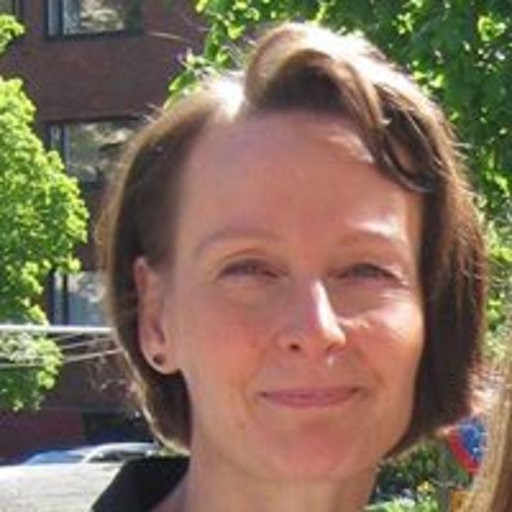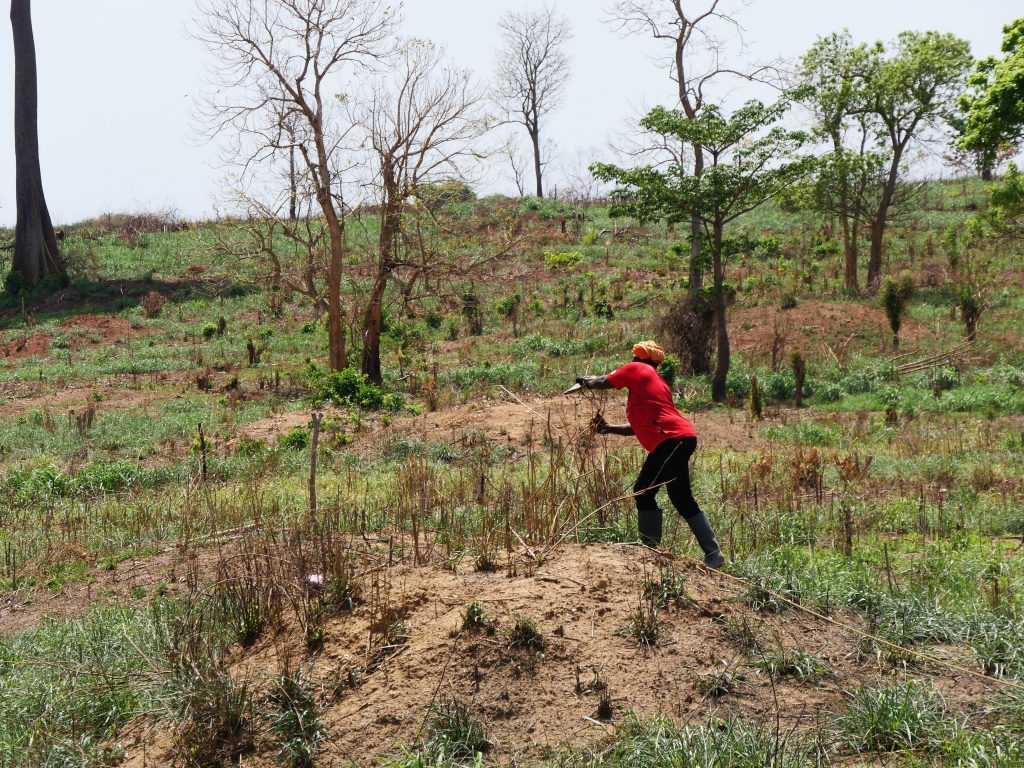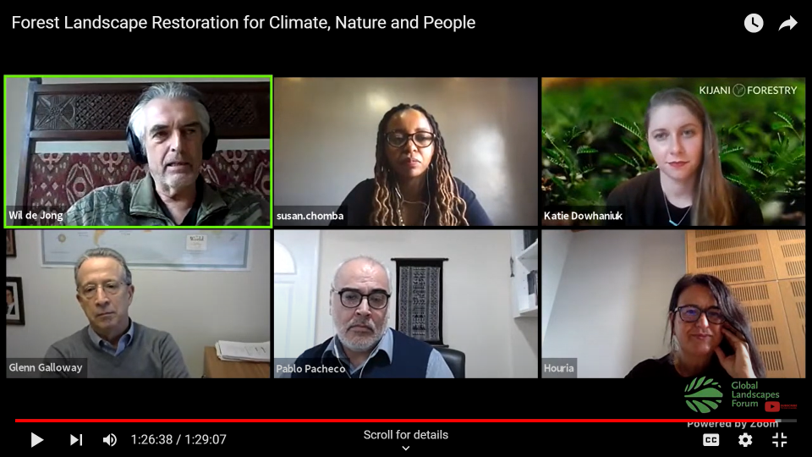World Forests, Society and Environment
Interview with Dr. Pia Katila, Coordinator of IUFRO’s Special Project on World Forests, Society and Environment (IUFRO-WFSE)

Dr. Katila is an expert in international forest policy, governance, and sustainable development with a special focus on developing countries. She works at Luke, the Natural Resources Institute Finland, based in Helsinki, where the WFSE Project has always been hosted. Visit: https://www.iufro.org/science/wfse/
2021 is a special year for WFSE. The Project was initiated 25 years ago in 1996 and was approved as a Special Project of IUFRO 20 years ago in 2001. Congratulations to you as the current Coordinator on these anniversaries! Can you briefly outline why the Project was started in the first place and explain why it is located in Finland?
WFSE has indeed a long history. It was initiated in the Finnish Forest Research Institute (Metla) in 1996 by Professor Matti Palo as a joint initiative between Metla, European Forest Institute (EFI) and United Nations University (UNU). The main aim was to address and look for solutions to global forest-related challenges such as deforestation, forest degradation, biodiversity loss and climate change as well as forest-related social and economic issues.
From the beginning, core principles of WFSE have been to increase international collaboration among scientists and experts working on forest-related issues, and to bring together scientists with different backgrounds and expertise and from different parts of the world.
WFSE has a focus on sustainable forest-related development and livelihoods, but it is not the only player in this field. What makes your approach unique?
WFSE is an open, global, network of scientists, experts and practitioners. It provides an independent platform for broad participation and collaboration. WFSE addresses its topics from different perspectives, in a holistic, interdisciplinary manner, and by bringing together ecologists, economists, social and political scientists and anthropologists.
The work is based on the collaboration of a large number of colleagues from different parts of the world, many of which come from the research and development organizations you refer to as players in this field, but also beyond. So, one of the key characteristics of WFSE that differentiates it from the other ‘players’ is the wide collaboration among a large number of scientists and experts.

For example, the development of WFSE’s latest major publication “Sustainable Development Goals: Their Impacts on Forests and People” involved 6 editors and 17 author teams, each of which was responsible for the developments of a particular chapter, altogether involving 120 scientists and experts from over 60 universities and research and development organizations. In addition, 38 scientists participated in the peer review of the different chapters of this publication.
Since your term as a Coordinator started, WFSE’s work has not only involved analyzing and synthesizing existing scientific knowledge; it has also included undertaking new research. How has this changed the Project?
Yes, since the beginning WFSE work focused on synthesizing existing scientific knowledge, and that is still an important part of our work. This is also important for identifying knowledge gaps, which WFSE has then partially addressed by undertaking new research, e.g., by conducting case studies, and cross case analyses, or by undertaking new analyses of existing data using new perspectives and posing new research questions. This has facilitated bringing in new perspectives to the forest-related debates and supported interdisciplinary analyses of forest-related issues and the interlinkages between them.
WFSE produces and disseminates scientific publications, policy and information briefs, and capacity-building materials. How do you select the scientists who work for WFSE and how do you find your topics? Do you have any current publication plans?
WFSE is a fully open network, all organizations and individuals are welcome to contribute to the project’s activities. The work is based on voluntary contributions and the main criterion is the scientific quality. Normally, when we initiate the work on a new topic, we invite international scientists and experts in that specific topic and related fields, to collaborate in developing the publications. The contents and approach are then further discussed and developed in meetings and workshops.
We focus on broad topics at the forest, society and environment interface; topics recognized by the scientific community as important and having significant policy implications, but which appear not to be receiving adequate attention from the policy community. These topics are closely related to and can have important implications for the issues discussed in the global development and environmental policy processes.
WFSE is now working on a comprehensive overview and assessment of the current state of knowledge regarding forest restoration under the working title “Restoring forests for sustainable development – Policies, practices, impacts and the way forward”. The chapters of this book aim at providing a comprehensive overview of the current state of knowledge regarding interacting social, economic, political and ecological aspects of restoring forests. This broad approach and bringing together the different perspectives will support finding new perspectives and insights for advancing socially and ecologically sustainable restoration. This book will be published in 2022.
Learn more under “current activities” at: https://www.iufro.org/science/wfse/

WFSE has just held successful sessions at the Global Landscapes Forum (GLF) Climate conference and at the UN Climate Change summit in Glasgow. What where these sessions about?
At the GLF Climate WFSE organized a panel discussion with the title “Forest landscape restoration for climate, nature and people”. The panelists discussed crucial issues and ways forward in advancing sustainable and equitable forest and landscape restoration and clearly demonstrated the complexity of the issue and interests involved.
The discussion focused on the current forest restoration efforts, which restoration benefits/outcomes are pursued, how the costs of restoration are distributed among different actors, who bears the costs of restoration and who actually benefits from forest restoration, what are the challenges and trade-offs of restoration at local level, and who are the important actors in restoration efforts, who participates in them and in related decision-making, and how should different actors be brought together?
The organizations represented in this event were CIFOR-ICRAF, WRI, WWF, University of Florida, Kyoto University, and Kijani Forestry. Visit: https://www.iufro.org/science/wfse/wfse-news/#c33367
At the UN Climate COP 26, WFSE was part of a joint side event, together with Rainforest Alliance and World Conservation Society. This panel discussion was titled “Thriving together: how strong alliances achieve climate resilient landscapes”.
The panel emphasized the role of multisector alliances as key in achieving climate resilient landscapes and livelihoods and that indigenous and local communities and smallholder farmers need to be included and treated as equal stakeholders in efforts towards resilient landscapes and supported by synergistic measures and policies that respect and strengthen local rights, livelihoods and economic opportunities.
The panel included representatives from CIFOR-ICRAF, RA, Kyoto University and Cafédirect, a UK-based alternative trading organization. Visit: https://www.iufro.org/science/wfse/wfse-news/#c33368
How do you see the future development of WFSE? Are there any specific topics you would like to address?
We are planning to continue the work on forest and landscape restoration and in the next phase look more closely at what is actually happening on the ground, how restoration is implemented in different locations and how the practice reflects the recommendations and good practices presented by different organizations and in the scientific literature.
Dr. Katila, thank you very much for the interview!
This interview was first published in IUFRO News 11/12, 2021: https://www.iufro.org/publications/news/electronic-news/io-news-2111-12/#c33459

Leave a Reply